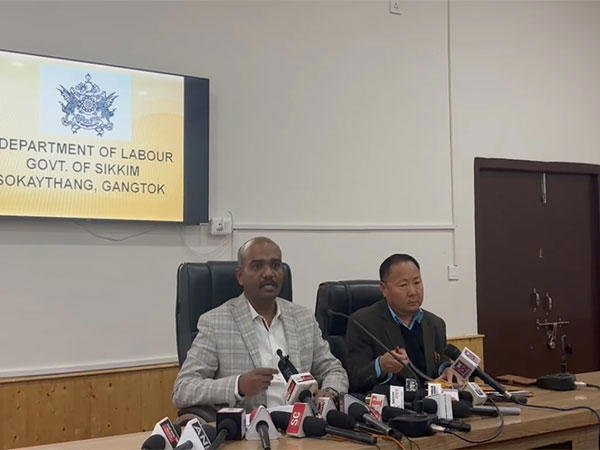Sikkim is set to implement a mandatory ‘Labour ID Card’ system for migrant workers as the verification deadline comes to a close. This initiative, introduced by the state government, aims to streamline workforce management, enhance security, and ensure the welfare of laborers working in various sectors across the state. With the verification process now complete, authorities are gearing up for full-scale enforcement of the new system.
Strengthening Workforce Regulation in Sikkim
The introduction of the Labour ID Card is a significant step in regulating the growing migrant workforce in Sikkim. As industries, construction projects, and businesses continue to expand, the presence of migrant workers has increased considerably. To maintain accurate records and prevent illegal employment practices, the government has made it compulsory for all non-local laborers to possess a verified Labour ID Card.
This initiative also seeks to address concerns about undocumented workers and labor rights violations. By registering under this system, workers will gain access to legal protections, healthcare, and fair wage regulations, ensuring a better work environment for all.
The Verification Process and Implementation
The government had previously set a deadline for migrant workers and their employers to complete the verification process. The verification included:
- Submission of identity documents such as Aadhaar cards and voter ID cards.
- Background checks conducted by local authorities.
- Employer verification and registration of work details.
With the verification deadline now over, the authorities will begin enforcing compliance strictly. Workers without a valid Labour ID Card may face restrictions on employment, and employers hiring unregistered laborers may be subject to penalties.
Ensuring Fair Treatment and Security
One of the core objectives of this policy is to ensure that migrant workers are treated fairly and do not face exploitation. The Labour ID Card system will serve as a safeguard against wage theft, unfair working conditions, and workplace abuse. Additionally, it will enable the state to track employment trends, thereby facilitating better workforce planning and policy formulation.
Furthermore, the system will enhance security measures in Sikkim. With proper documentation, authorities can efficiently monitor the movement of migrant workers and address any potential concerns related to crime or unlawful activities. This initiative aligns with Sikkim’s broader efforts to maintain peace and order while fostering economic growth.
Impacts on Employers and Businesses
Employers, particularly in the construction and hospitality sectors, will need to ensure that their workers comply with the new regulations. Companies and contractors will be required to:
- Verify that all employed migrant workers possess a Labour ID Card.
- Maintain updated records of their workforce.
- Cooperate with labor authorities for inspections and audits.
While some business owners have raised concerns about the administrative burden, many acknowledge that this system will ultimately lead to a more organized and accountable labor market. The government has assured stakeholders that the transition will be smooth, with support mechanisms in place for employers and workers alike.
Support and Welfare Measures for Migrant Workers
The implementation of the Labour ID Card is not just about regulation; it is also intended to support migrant workers. Once registered, workers will be eligible for various state welfare programs, including:
- Healthcare benefits under government schemes.
- Legal assistance in case of workplace disputes.
- Access to financial support for emergency situations.
By formalizing the status of migrant workers, the government aims to create an inclusive labor environment where workers’ rights are protected, and their contributions are acknowledged.
Looking Ahead: Challenges and Expectations
While the policy is a progressive step towards workforce regulation, it does come with challenges. Some laborers have expressed difficulties in obtaining the necessary documents, and employers are navigating the complexities of compliance. To address these concerns, the government has assured flexibility in initial implementation and has provided helpline services for guidance.
Moving forward, authorities will monitor the effectiveness of the Labour ID Card system and make necessary adjustments to improve efficiency. The success of this initiative will depend on cooperation between workers, employers, and the government.
With the verification deadline now behind us, Sikkim is set to enforce the Labour ID Card mandate, marking a significant shift in labor management. This initiative promises to enhance security, protect workers’ rights, and create a more transparent and organized employment landscape. As the state embarks on this new chapter, the focus remains on balancing regulation with welfare, ensuring a sustainable and fair work environment for all.




